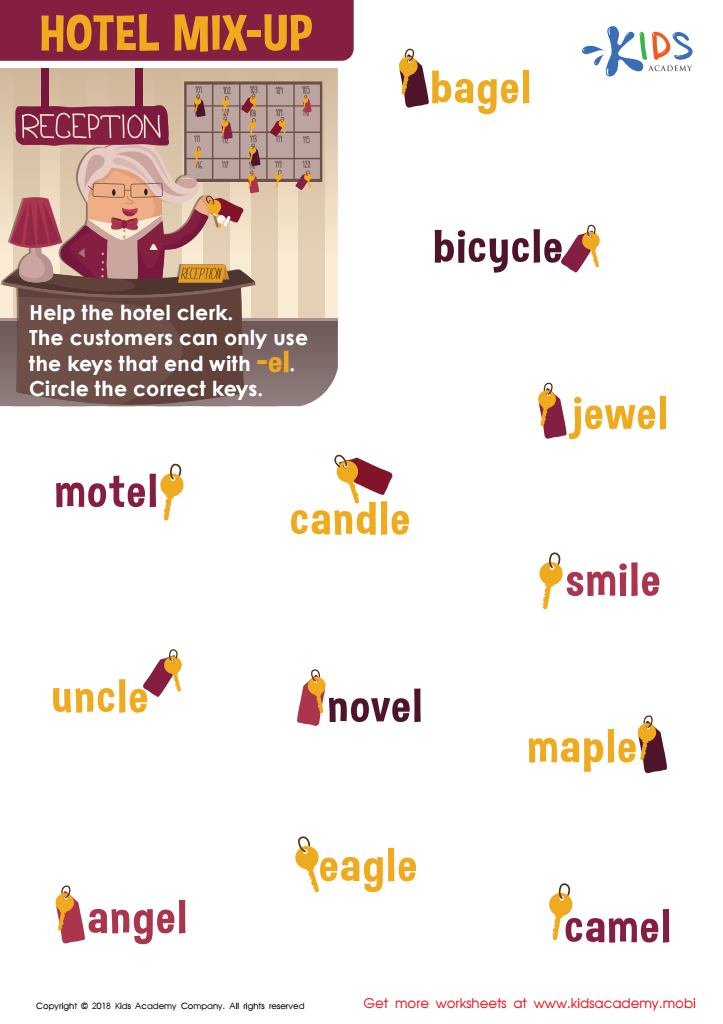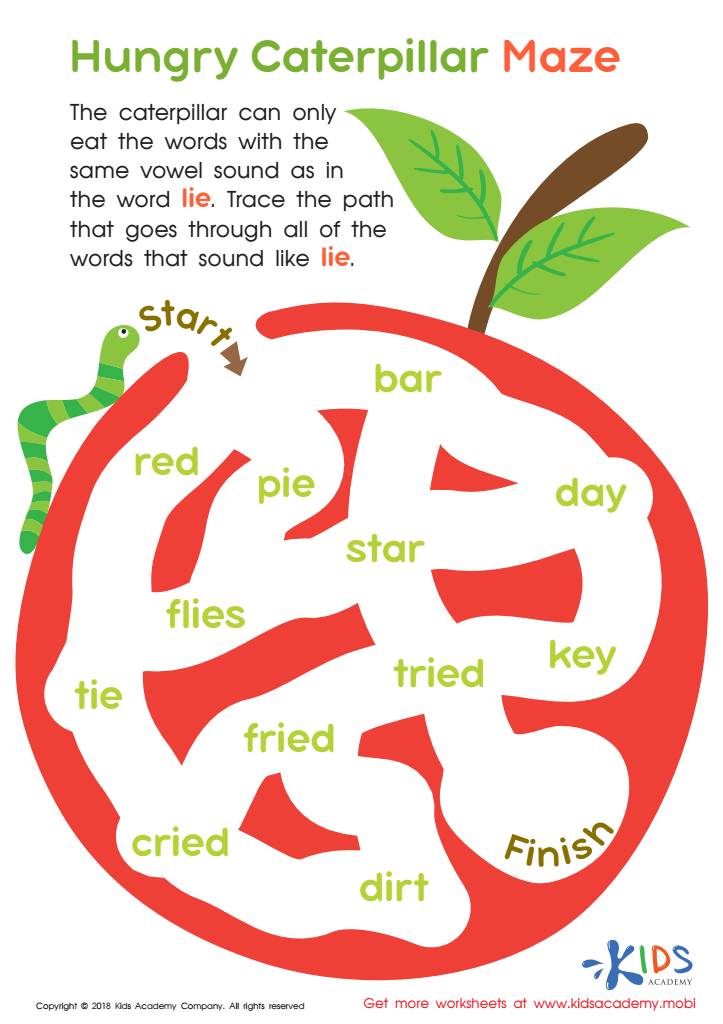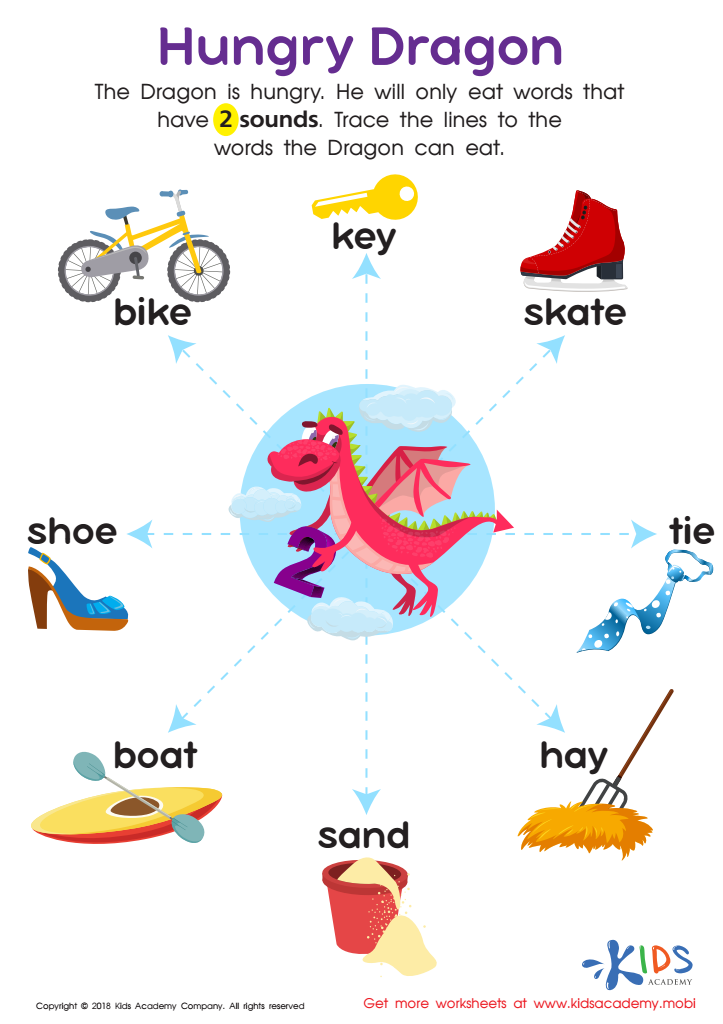Problem-Solving Skills Normal Phonics Worksheets for Ages 3-9
4 filtered results
-
From - To
Discover the joy of learning with our Problem-Solving Skills Normal Phonics Worksheets, tailored for children aged 3-9! Our engaging and interactive worksheets effectively integrate phonics skills with essential problem-solving techniques. Designed to foster critical thinking, these activities will guide young learners as they decode words, identify patterns, and enhance their reasoning abilities. Perfect for classroom settings or at-home learning, these worksheets help children build a strong foundation in literacy while developing essential cognitive skills. Explore a variety of exercises that make learning fun and interactive, ensuring every child can succeed on their educational journey. Start enhancing your child's learning experience today!


Hotel Mix-up Worksheet


Long Vowel Maze /o/ and /i/ Worksheet


Hungry Caterpillar Maze Worksheet


Hungry Dragon Worksheet
Parents and teachers should prioritize problem-solving skills, particularly through resources like Normal Phonics, for children aged 3-9 because these skills underpin foundational literacy and cognitive development. During these formative years, children are naturally curious and eager to explore language through play and guided learning. Problem-solving abilities encourage critical thinking, allowing children to decode words, make connections, and understand sentence structure.
Normal Phonics employs engaging techniques to help young learners grasp phonemic awareness, facilitating an understanding of how sounds correspond to letters and words. This not only boosts reading proficiency but also enhances overall communication skills. Effective problem-solving fosters resilience; children learn to tackle challenges and experiment with different approaches to find solutions. These attributes translate beyond academics, equipping children with skills valuable throughout their lives, from social interactions to decision-making.
Moreover, nurturing problem-solving skills creates a supportive learning environment where children feel confident to express themselves, ask questions, and collaborate with peers. The integration of phonics through problem-solving frameworks helps ensure that the learning process is interactive and enjoyable, effectively maintaining children's enthusiasm for learning. Thus, by focusing on these skills, parents and teachers play a crucial role in shaping competent, curious, and creative individuals ready to navigate the world.
 Assign to My Students
Assign to My Students



















